第547章
(14) Whence it comes that these Lacedemonians declare themselves here to be of kin to the Jews, as derived from the same ancestor, Abraham, I cannot tell, unless, as Grotius supposes, they were derived from Dores, that came of the Pelasgi.These are by Herodotus called Barbarians, and perhaps were derived from the Syrians and Arabians, the posterity of Abraham by Keturah.See Antiq.B.XIV.ch.10.sect.22; and Of the War, B.I.ch.26.
sect.l; and Grot.on 1 Macc.12:7.We may further observe from the Recognitions of Clement, that Eliezer, of Damascus, the servant of Abraham, Genesis 15:2; 24., was of old by some taken for his son.So that if the Lacedemonians were sprung from him, they might think themselves to be of the posterity of Abraham, as well as the Jews, who were sprung from Isaac.And perhaps this Eliezer of Damascus is that very Damascus whom Trogus Pompeius, as abridged by Justin, makes the founder of the Jewish nation itself, though he afterwards blunders, and makes Azelus, Adores, Abraham, and Israel kings of Judea, and successors to this Damascus.It may not be improper to observe further, that Moses Chorenensis, in his history of the Armenians, informs us, that the nation of the Parthians was also derived from Abraham by Keturah and her children.
(15) This word" Gymnasium" properly denotes a place where the exercises were performed naked, which because it would naturally distinguish circumcised Jews from uncircumcised Gentiles, these Jewish apostates endeavored to appear uncircumcised, by means of a surgical operation, hinted at by St.Paul, 1 Corinthians 7:18, and described by Celsus, B.VII.ch.25., as Dr.Hudson here informs us.
(16) Hereabout Josephus begins to follow the First Book of the Maccabees, a most excellent and most authentic history; and accordingly it is here, with great fidelity and exactness, abridged by him; between whose present copies there seem to he fewer variations than in any other sacred Hebrew book of the Old Testament whatsoever, (for this book also was originally written in Hebrew,) which is very natural, because it was written so much nearer to the times of Josephus than the rest were.
(17) This citadel, of which we have such frequent mention in the following history, both in the Maccabees and Josephus, seems to have been a castle built on a hill, lower than Mount Zion, though upon its skirts, and higher than Mount Moriah, but between them both; which hill the enemies of the Jews now got possession of, and built on it this citadel, and fortified it, till a good while afterwards the Jews regained it, demolished it, and leveled the hill itself with the common ground, that their enemies might no more recover it, and might thence overlook the temple itself, and do them such mischief as they had long undergone from it, Antiq.
B.XIII.ch.6.sect.6.
(18) This allegation of the Samaritans is remarkable, that though they were not Jews, yet did they, from ancient times, observe the Sabbath day, and, as they elsewhere pretend, the Sabbatic year also, Antiq.B.XI.ch.8.sect.6.
(19) That this appellation of Maccabee was not first of all given to Judas Maccabeus, nor was derived from any initial letters of the Hebrew words on his banner, "Mi Kamoka Be Elire, Jehovah?"("Who is like unto thee among the gods, O Jehovah?") Exodus 15:11as the modern Rabbins vainly pretend, see Authent.Rec.Part I.
p.205, 206.Only we may note, by the way, that the original name of these Maccabees, and their posterity, was Asamoneans; which was derived from Asamoneus, the great-grandfather of Mattathias, as Josephus here informs us.